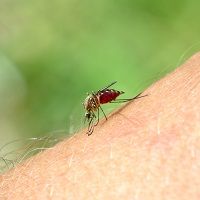CDC Investigates 14 Sexually Transmitted Zika Virus Cases
The Centers for Disease Control and Prevention (CDC) is investigating reports of 14 new Zika cases – all of which are women – that are suspected to have been sexually transmitted.

The Centers for Disease Control and Prevention (CDC) is investigating reports of 14 new Zika cases — all of which are women – that are suspected to have been sexually transmitted.
The Zika virus is primarily spread to humans via Aedes aegypti mosquito bite. Officials were suspicious that Zika could be transmitted through sexual contact — like many other viruses can be. The first sexually transmitted Zika case was confirmed on February 2 when Dallas officials revealed that a patient was diagnosed after having sex with someone returned from an infected country with the virus.
Among the 14 new cases, two Zika diagnoses are in women who had sexual contact with men who had recently traveled to infected areas. The women have no other known risk factors that could explain the illness. Another four women have verified preliminary laboratory evidence (IgM antibody test) results but the confirmed diagnoses are still pending. The last eight cases are still being analyzed.
- Related: Zika Virus: To Fund or Not to Fund?
All of the men traveled to regions where the virus is ongoing and experienced Zika symptoms within two weeks before their sexual partners developed symptoms, according to the available data. Officials divulged that this shows that sexual transmission of Zika is more likely than previously thought.
“At this time, there is no evidence that women can transmit Zika virus to their sex partners; however, more research is needed to understand this issue,” the CDC statement said.
Although mosquito bite is a much more common route of Zika transmission, the CDC released guidelines to avoid spreading or contracting the virus through sexual contact. If a man resides in or traveled to one of more than 30 countries and regions where Zika is persisting, he should use condoms or abstain from sex. Since the virus is strongly believed to cause the baby brain-shrinking condition microcephaly, pregnant women should talk to their health care provider about the risks before engaging in sexual activity with a man with travel history.
There is no vaccine or specific treatment for Zika, therefore, preventive measures are the best weapon we have right now.
Also on MD Magazine >>> Zika Virus Linked to Three Deaths in Venezuela